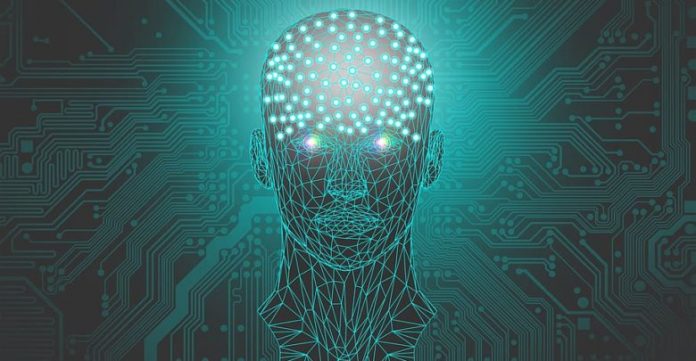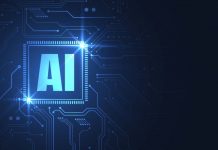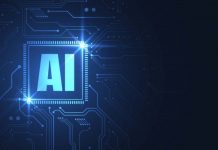This article has been written by Diya Banerjee, Symbiosis Law School, NOIDA. The article explores all aspects of technology in law and works on the debate of Artificial Intelligence posing a threat to the traditional legal business.
Table of Contents
Introduction
The legal profession has existed since ancient times, though the nature of their punishments will be absurd in contemporary times. In ancient Indian history books, we hear of courts which were constituted specifically to deal with family issues and caste. There was the King’s court which was the highest court just like the Supreme Court of India and decisions were based on the result of the trial by ordeals. Putting aside the questionable justice system of those times, even in the historical times, one was expected to be well-versed with the Vedas and scriptures to act as a judge or a lawyer, mirroring the qualifications necessary in the current society.
This aspect of the professional has not changed, of course, but the entire outlook of the profession has undergone a tremendous change. To measure the change, before the Indian pre-independence era, the job was a noble call to service. The monetary aspect of the job was neither the determiner for the occupational choice nor was the fees exorbitantly high. The picture we see today is drastically different from the pre-independence era. There were two major observations noted concerning the legal work field-
- The increased number of women joining and excelling in the field.
- Money (and power) became the strongest incentives for choosing this field as one’s career choice.
The first observation was expected, especially after the 1990s, because of the government’s emphasis that involvement of the entire population in not only the primary but also secondary and tertiary industry would lead to national growth at the macro level and raised standards of living at the micro-level. The unexpected phenomenon was the monetary association with the job. If you think logically when the monetary aspect of a thing becomes more prominent, it is bound to get commercialised. The same with the legal occupation, i.e., it turned into a business.
The legal business has since then grown parallel to the competitive market. But a competitive market never guarantees the stability of one’s job. The legal business may be an organised sector but the advancement in technology and robotics have recently emerged as a threat to the traditional legal business and livelihood of many. In 2018, India made 7 humanoid robots and before that, we have already seen news headlines and reports on a robot named Sophia created in 2016 by a Hong Kong-based company Hanson Robotics. Then we saw China’s three most viral and popular humanoid robots, Jia Jia who is quite not in her best version yet, Qiu Hao- world’s first AI male news anchor and Xin Xiaomeng- world’s first AI female news anchor. The rapid advancement in developing human-like robots has been perceived as a ‘replacement’ for human jobs like surgeons, journalists and in this case, lawyers.
Recent advancements in AI
Artificial Intelligence is the human simulation in robots to think like humans and mimic their actions. They were initially programmed for learning and problem-solving, but now the focus of their creators has shifted to equipping them with the ability to rationalize and provide specific goal-oriented outcomes.
The first thing which comes to someone’s mind whenever Artificial Intelligence is mentioned is ‘robots’ and such robots look nothing less than humans. These imaginations were fuelled by sci-fi novels and movies. While the description is not too different, very few successful AI robots have been created which look and act like humans. Most of the AI developments have been introduced in the healthcare and banking and finance sector. In the healthcare sector, the AI is limited to dosing drugs for different patients and providing assistance in surgical operations in the operating room. The drug dosage is given after the robot checks the patient’s temperature/vitals and complaints and in the operating room, it responds to the voice of the surgeon. So we can say that in the healthcare sector, AI robots have been programmed to solve basic drug requirements and to respond to the surgeon’s command.
In the banking and finance industry, AI robots are used to detect unusual debit card usage and large account deposits which help the bank’s fraud department. AI also helps in streamlining and simplifying trading because of their ability to calculate the estimated supply, demand and pricing of securities according to the market flow.
2018 and 2019 saw breakthroughs in the advancement of Artificial Intelligence other than creating humanoids.
- An AI software has been created which will make the job of detecting fake news and pointing its origin much quicker and easier.
- AI models have gained prominence in companies and businesses because of their ability to simplify trading and their employment rate will boost the economic credibility and goodwill of the companies.
- AI computer vision will make it easier to extract particular video and audio clips from CCTV surveillance cameras which could not be performed before.
- AI will also help in increasing and improving customer services because the particular machine can be programmed to sense the emotions a customer would feel after customer services.
- Again, AI has evolved in the business front when it comes to assisting in decision-making procedure and compiling the key points for the stakeholders.
While it is assured that no employee and human resource would be replaced, the mere easy and growing inclusion of AI in major industries is a threat to their employment.
Scope of Technology in Law
Imagining a world without computers and the internet is impossible. If you think about it, nearly all our activities revolve around digital gadgets. This dependency on technology has also become an integral part of the traditional legal business. Advancement in technology has proved to be highly beneficial in making certain legal tasks and services much more feasible.
- Analytics became essential: many cases which come before the courts are of similar nature. For example, if a case of ‘homicide by arson’ is presented before a court for awarding the punishment, the lawyer and the judge could cite and depend on a similar murder judgement which was given a few years ago. This linking of patterns over the years has helped in making the job of analysing and referencing facile.
- Legal research became smarter and comprehensive: this is possibly one of the most prominent benefits of legal technological advancement. If one was to look up similar cases to The State Of Maharashtra vs Chandrabhan Sudam Sanap (Shakti Mills Case) or Justice K.S.Puttaswamy(Retd) vs Union Of India (The Right to Privacy Case), one need not go to the fat, thick books and search through all the hundreds of pages to come up with that one case. It is sufficient for one to simply open legal portals like SCC Online or Manupatra and simply type the keywords to find not one but many relevant cases.
- Legal news reaches a bigger crowd: We all refer to applications like GK Today, Bar&Bench or Lawyers Club India to be abreast with the latest legal news. On television, most of the coverage is related to political and economic developments. These applications and online websites provide the necessary exposure to the public regarding the legal aspects of a country’s judicial environment.
- Technology in law gave rise to cyberlaw: It is hard to forget that the escalation of the breach in computer systems led to the formulation of cybersecurity, which led to the birth of cyberlaw and the continued spike in cases of fraud and hacking into company funds and leak of sensitive data strengthened the need to improve the application and workforce specialising in the field.
- Online authentic legal information and aid became accessible: the influence of technology and the ability to open personal websites/blogs have enabled the public to approach and access websites providing practical legal information either from legal organizations or lawyers providing legal advice. Legal queries and requests for free legal aid can also be sent through electronic channels.
If one is to observe closely, one will have to admit that a lot of the previously tedious jobs have been made effortless because of the use of specific legal technological portals and gadgets.
The Debate: Artificial Intelligence versus Law
All this talk on technology, artificial intelligence and law bring us to the hot topic of ‘AI vs. Law’. We saw how advancement and development of highly sophisticated robotic automation have made the boring and long jobs of researching and taking note of the observations quick and accurate. In whichever way you look at it, they have come up as an alternative for human employment and human resource in general.
Logically speaking, it is not a surprise that companies and legal firms would replace humans for robots because the level of accuracy guaranteed by the latter is incomparably higher than the former. But advocacy is, after all, a job requiring human conscience, sentiments and touch. We read of cases where a man attacked and fatally wounded another man out of pure mistake or an inevitable accident. Such situations involve emotions which robots lack. While a lawyer would be able to justify his client’s actions, the same cannot be said. Speedy disposal of cases does not mean compromising the effective verdict. Therefore, AI is definitely not going to replace humans anytime soon but yes, they can change the structure of the legal system and increase its effectiveness.
Future of legal firms
- Innovative ways to serve clients in terms of client-oriented environment and approach.
- Technology will become the foundation of growth for lawyers to be able to work alongside their robot counterparts.
- Expanding brand value and advertisement will get the focus.
Assisting in legal jobs
- Due diligence will be followed while reviewing contracts, doing thorough legal research and performing any kind of legal study.
- Predicting trends of the kind of legal problems which could influence the kinds of cases getting presented before the courts of law.
- Electronic billing, i.e., special software would be created so that the fees charged for any legal service provided will be realistically calculated, helping both the lawyer and the client.
AI not a replacement for lawyers
AI is certainly not going to replace lawyers because a computer coded program can only go so far to give the correct judgement. Do not forget that AI could be 100% accurate only if the clients are also robots, which does not happen because in the human world, in most of the cases, humans fill in for both the roles of the lawyer and that of the client.
Law was a subject made to solve human problems by fellow humans and it will remain so. While it might be a requirement for a certain class of lawyers to be proficient with coding, the majority of them would not be concerned with that. After all, the legal occupational structure is a field requiring human interaction, knowledge and communication skills, and will continue to uphold and promote that. Another point to ponder over is taking other platforms which heavily deal with technology and AI as an example to study the trend of AI enhancing the productivity of humans. Platforms like Amazon, Myntra and Google engage almost an equal share of automated machines in proportion to their human resource and they are doing just fine. Not just that, their employee count and the employment rate has risen compared to years prior to the introduction of AI. Therefore, rather than a bane, AI is and should be looked as a boon to the future legal system.
Conclusion
Humans are naturally inclined to explore the depth and extent to which science can take them, be it in space research or Artificial Intelligence. This curiosity enabled us to discover the world of AI and how it can benefit human society from undue or urgent labour issues. But those against the introduction of AI in our daily lives also have a legitimate reason to be concerned for- robots can work for hours without breaking a sweat, this makes them more productive than humans. Would that not cause the jobs of people who are ‘average’? Although, till now none of the humanoid robots have their own emotions, thoughts and conscience; would upgrading them to mimic a natural human not risk the employment of those who deal with emotional and humane issues, take for example, a lawyer? Not to forget, depending completely on machines will turn us, humans, into unfit and unhealthy versions of human-like ‘robots’.
As a solution, many scientists and robotics experts argue that the involvement of AI would equip the present-generation to learn and work with codes to ‘guide’ the robots to give accurate outcomes. But that kind of a solution is no solution at all! What would happen to those who either cannot afford to take such coding courses or cannot be successful even after putting efforts to learn and study the codes? Everyone is not the same in terms of brains and health. According to me, the only feasible solution to keep the world from plunging into a chaos of unemployment is to not employ robots in core human activities. Their extent of effectiveness can be tested even while keeping them limited to and for specialised assistance. We cannot allow human-created Artificial Intelligence to rule the system we have put together.
As it was rightly said, “humans should not become slaves to their own creations”.
References
LawSikho has created a telegram group for exchanging legal knowledge, referrals and various opportunities. You can click on this link and join:
https://t.me/joinchat/J_0YrBa4IBSHdpuTfQO_sA
Follow us on Instagram and subscribe to our YouTube channel for more amazing legal content.
 Serato DJ Crack 2025Serato DJ PRO Crack
Serato DJ Crack 2025Serato DJ PRO Crack











 Allow notifications
Allow notifications


